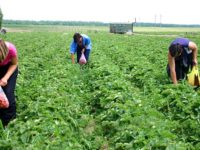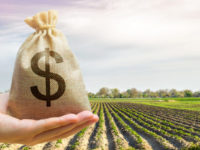The latest edition of the Rabobank Rural Confidence Survey reveals that confidence levels among Australian farmers have marginally improved although it remains in the negative. The research found the confidence level currently sits at -22 per cent, an increase from the -25 per cent recorded in the previous quarter.
Around half of farmers expect no change to how the Australian agricultural economy performs over the next 12 months, although 13 per cent expect conditions will improve (up from 11 per cent in the previous survey) and 35 per cent (down from 36 per cent) expect conditions to worsen.
In particular, those expecting conditions to worsen are worried about falling commodity prices (56 per cent) or rising input costs (29 per cent). There is, however, an increased number of farmers concerned about government intervention/policies at 18 per cent compared to 10 per cent in the previous survey.
Farmers with a positive outlook were buoyed by improved markets, with 65 per cent citing rising commodity prices as a driver and 33 per cent nominating the good season thus far.
Rabobank group executive for Country Banking Australia Marcel van Doremaele commented that the survey paints a picture of how farming conditions across the nation drive a range of confidence levels.
“While nationally confidence increased marginally, it’s riding on the back of a much larger surge of positivity in Queensland, where confidence lifted from -30 per cent to -13 per cent,” van Doremaele said. “We can’t credit this just to winning the State of Origin opener – seasonal conditions and commodity prices are the real drivers of the optimistic outlook in Queensland.
“Across the rest of the country, sentiment is more tempered,” he added. “Farmers have ridden a rollercoaster of seasons, historically high commodity prices and eye-watering input costs in recent years. Now, as the heat comes out of many commodities and input prices ease, farmers are adjusting their outlook in response to ‘normalisation’ of economic conditions. Seasonally, they’e still experiencing a mixed bag on a national level, which also drives a conservative outlook. The mention of El Niño weather patterns also tempers confidence.”
Despite marginally higher confidence, Australian farmers remain cautious about increasing investment in their farm businesses. Only 21 per cent expect to increase their investment over the next 12 months.
“Farmers across the country are realigning their investment intentions and focusing spending on projects that will deliver essential productivity gains, including labour-saving infrastructure and technologies. There’s also an ongoing focus on investments which will strengthen their seasonal resilience,” van Doremaele said.
There was a shift in other areas where farmers will focus their investments, with 21 per cent looking to purchase new property and 34 per cent intending to increase livestock numbers. 45 per cent expressed intent to invest in technology, while 26 per cent plan to invest in labour and 23 per cent in education.
Meanwhile, only 17 per cent of farmers plan to borrow to purchase property. Grain, sheep and dairy farmers had the strongest intention to use new borrowings to fund property purchases.
“While we’re still seeing strong demand for rural properties – especially well-presented, ‘blue chip’ offerings when they come on the market – overall there’s a decrease in the number of farmers who intend to purchase new farming land in the next 12 months,” van Doremaele said. “This reflects how our industry is reassessing where key factors such as markets, input costs and of course interest rates have landed following recent adjustments and farmers taking a hard look at what this means to their bottom line.”















